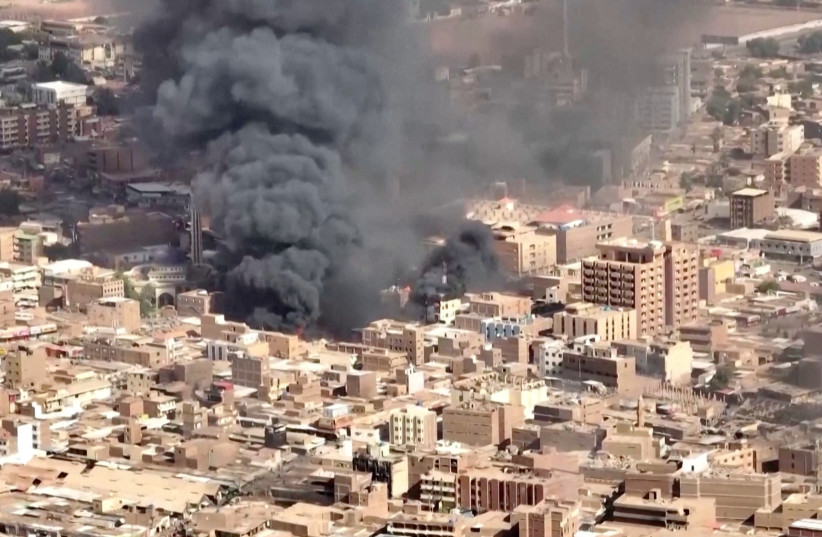Foreign Minister Eli Cohen’s participation in the UN’s High-Level Pledging Event for Sudan and the Region this week, in which he committed to help the struggling African country with food security, is part of a long history of Israeli humanitarian efforts over the years.
Israel has for decades been aiding developing countries around the world through MASHAV, a Hebrew acronym for Israel’s Agency for International Development Cooperation.
Golda Meir established the agency as foreign minister in 1958 to help developing countries that could benefit from the knowledge Israel acquired as a fledgling state. To this day Israel continues to work with countries around the world to ensure their sustainable social, economic and environmental development.
MASHAV's global role
MASHAV’s flagship program has brought over 270,000 people from 132 countries to Israel for training in a variety of fields, and Israel has built “Centers of Excellence” abroad in a range of agricultural areas, and “Shalom Clubs” for alumni to network and have a greater impact in their home countries. Israeli embassies work with MASHAV to share knowledge and technology focused on water, agriculture, medicine and beyond, as well as aid packages of food, medical equipment and more for those in need.
In the last week alone, MASHAV sent thousands of liters of potable water and over 10 tons of food to Ukraine, for volunteers to distribute following the explosion of the Khakovka Dam. Meanwhile, the Israeli Embassy in Brazil donated food to a food bank grown as part of a project to teach sustainable vegetable farming methods using Israeli technology, and professionals from 20 countries arrived in Haifa for training.

In recent years, Israel has sent aid to various countries at war, like Ukraine, and disaster zones, like areas impacted by this year’s devastating earthquakes in Turkey. The Foreign Ministry works in coordination with the IDF, which has world-class search and rescue teams, and the Health Ministry, which has set up field hospitals and sent medical teams abroad.
Showcasing Israeli humanitarianism
Israelis have also launched their own private rescue missions, through NGOs like IsraAID that specializes in emergency response and has worked in over 50 countries. Save a Child’s Heart has brought over 4,500 children from 63 countries to Israel for life-saving cardiac care, including Palestinians and citizens of neighboring countries with which Israel does not have diplomatic relations. And these are only some of the most prominent efforts; there are many more.
As in any other country, Israel’s humanitarian policy is a tool for advancing the state’s interests. Meir founded MASHAV as a way to counteract the Arab boycott and build new alliances for Israel in the post-colonial era, when many new countries were achieving independence around the world.
Cohen hopes to finalize the normalization process between Jerusalem and Khartoum, which began in late 2020 as part of the Abraham Accords, but faltered after civil war broke out in Sudan. Through its aid and sharing of expertise in countries like Morocco, where Foreign Ministry Special Envoy for International Water Affairs Yoram Morad spoke about regional cooperation this week. Israel wants to show other countries that establishing diplomatic ties with Israel will be beneficial to them.
Diplomacy and Jewish values
Israeli humanitarian aid is also a part of the Jewish state’s fulfillment of Jewish values. The psalmist’s phrase “Tikkun Olam,” to repair the world, has been used so much that it has become something of a cliche, but there are other relevant memes, such as “build a world of kindness,” from Psalms, or as the Talmud says (Sanhedrin 37a), “Whoever saves one life is considered to have saved the whole world.”
As Israel pledges to aid Sudan and countries beyond, it is continuing its fulfillment of Jewish and Zionist ideals to be a light unto the nations, as well as fulfilling a moral duty to save lives. It is expressing its solidarity with people in need and showing it is a responsible member of the global community, building bridges of friendship and cooperation.
Israelis are putting the country’s best face forward, building a positive image for the nation that will stick with countless people around the world.
